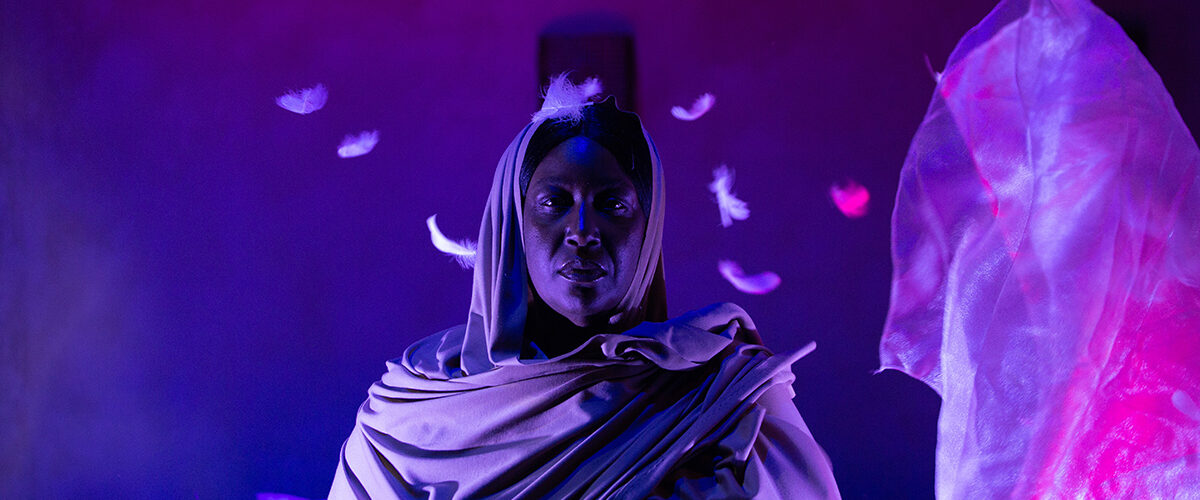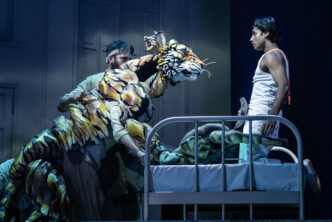Questions concerning who should be permitted to write about certain topics and, more pointedly, which actors should be allowed to play certain roles have become increasingly vexed in recent times. I don’t wish to poke my finger into wounds that are already deep and tender, but it does strike me that, underneath these disputes, lie quite profound matters regarding the purpose of drama.
Other than serving as a modern ‘opiate of the people’, what might drama be for? I think there are two distinct, yet conjoined, purposes. The first has me sitting in the dark, staring at a stage or screen, seeing some version of myself and hence feeling less alone. In the second, what I see is more novel (to me), unfamiliar and perhaps challenging – I regard events in the lives of people very different from me. And yet, beyond this visit to the Human Zoo, provided the contract between performers and spectator is honoured on both sides, what endures is not the exoticism of the zoo, but the humanness of it all; not the distance between us, but the inescapable connections. Empathy, you might say, is the constant homestead that awaits the dramatic voyager.
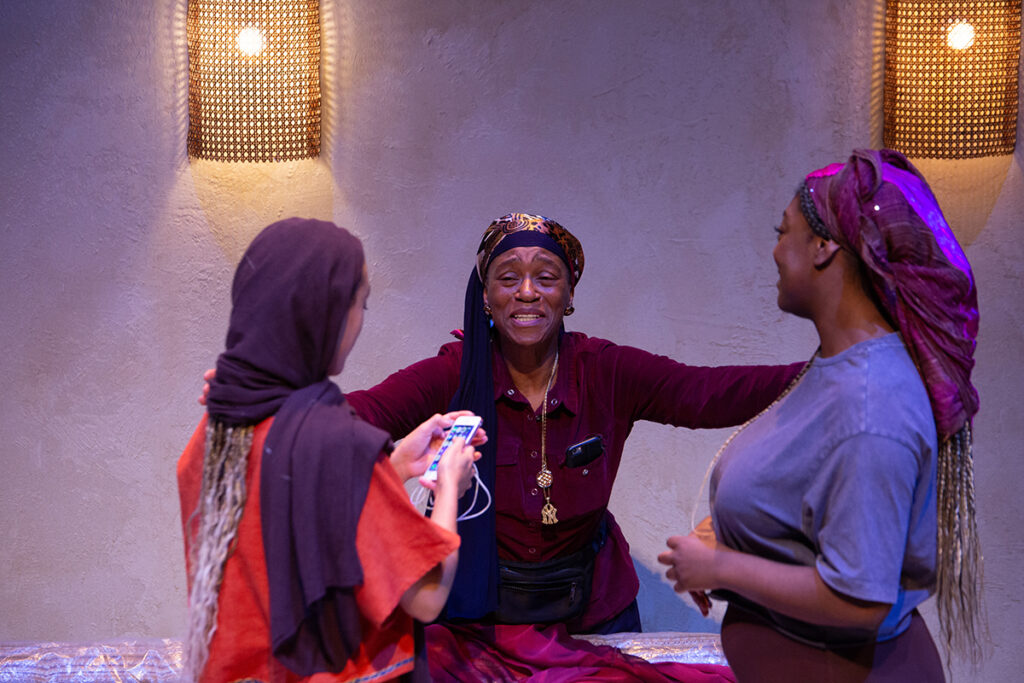
And so – a fairly well-educated heterosexual white man, pushing seventy – here I sit in the dark watching five talented actors perform a play about muslim women of African heritage. It is, moreover, a play inspired by another play, written almost ninety years ago, by a Spanish homosexual, soon after to be murdered by fascists. It has nothing and yet everything to do with me.
Yusra Warsama, who wrote and directed “Of All the Beautiful Things in the World”, has transplanted Federico Garcia Lorca’s great poetic drama, “The House of Bernarda Alba” to a terraced street in Manchester in 2023. It’s a clever move.
Matriarch, Ugdoon (Marcia Mantack) having escaped war in Somalia many years ago (“You don’t know this woman who still smells death,” we are told later) is mourning the death of her second husband. To assert her authority, now that she is mother and father, to observe tradition, and to still wagging tongues, she confines her three grown-up daughters to the house, forbidding them to leave until her first born, Mariam (Sara Abanur) marries the man to whom she is betrothed. Warsama follows Lorca in that, while masculinity hangs heavy over the house, no male actor ever appears on stage.
This imprisonment of three lively, loving but feisty sisters, raises the domestic temperature (literally and figuratively).
Before the action starts, we hear an extract from the 1982 documentary on the life of Eartha Kitt (“All By Myself”) in which Eartha laughs bitterly at the interviewer’s suggestion that love might involve compromise. In what follows we shall see there is much love but little compromise in this home.
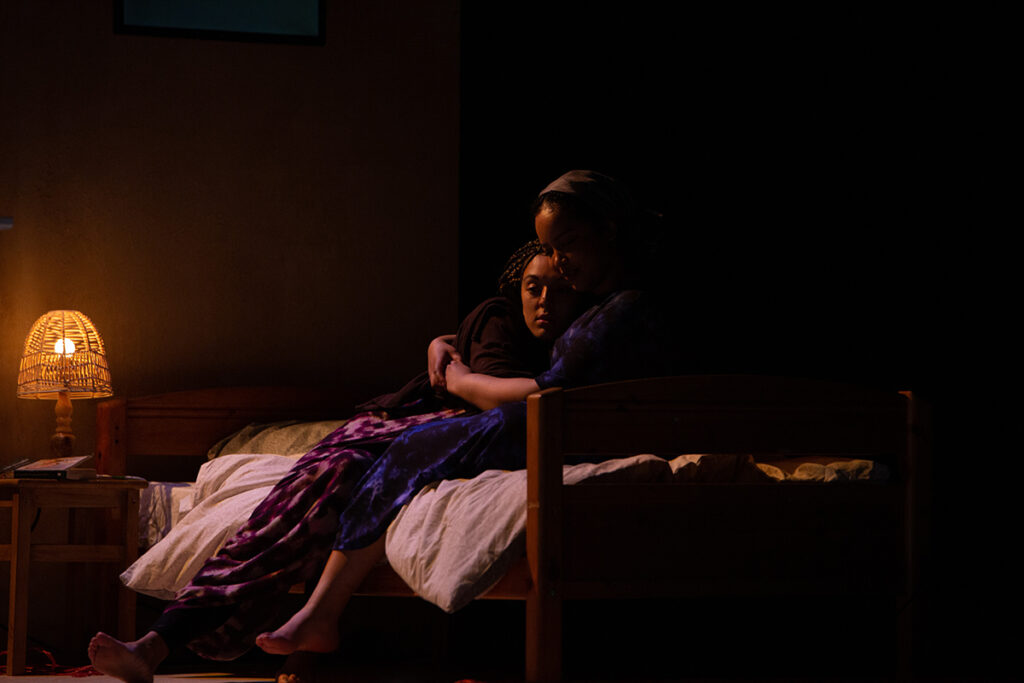
As the action begins, Mrs F.A. (Flo Wilson) the housekeeper, a refugee given a home by Ugdoon, walks in to discover middle daughter, Aalyah (Cora Kirk) lying on the sofa, masturbating. Neither pauses her activity, until Mrs F.A. observes that she now understands why the furniture is still wrapped in “plastic”.
It’s a bold and funny opening with perhaps a deeper significance (given this family has Somali roots; a country still troubled by “cutting,” more commonly known in the West as FGM). The action also introduces Aalyah as the transgressor, the interrogator, the secret smoker; filled to bursting with anger and a sense of injustice at her family, the country, the world and its history. Much given to what my mother would have called, “effin’ and blindin,’” Aalyah is a stirrer, but also loving. Despite her sometimes spiteful outbursts, Cora Kirk succeeds in making us care for her.
Eldest daughter, Mariam, had a different father (one who left her the dowry the other two lack). The money that will come to her only when she marries causes friction, especially with Aalyah. Nevertheless, Mariam shows herself loving when she takes the blame, for the “crime” of reading their mother’s business accounts, in order to protect Aalyah from punishment.
Youngest daughter, Suhela (Xsara-Sheneille) charming, sensuous, naive, complains of constant headaches, but does she harbour a guilty secret?
Lorca knew his audience would recognise Bernarda without the need to reveal her inner world. In contrast, Warsama wants us to know what drives Ugdoon and gives her an “interior” monologue, but with the words spoken through a microphone by Flo Wilson’s Mrs F.A. (almost like performance poetry). It’s an important moment, but might have worked better integrated into the drama (as an exchange, for example, between Ugdoon and Mrs F.A.)
The daughters want choices, love and, indeed, passion, but their mother fears not only the gossips, but a dominant culture that would have her children dying “from the inside out.” The incarceration cannot end well.
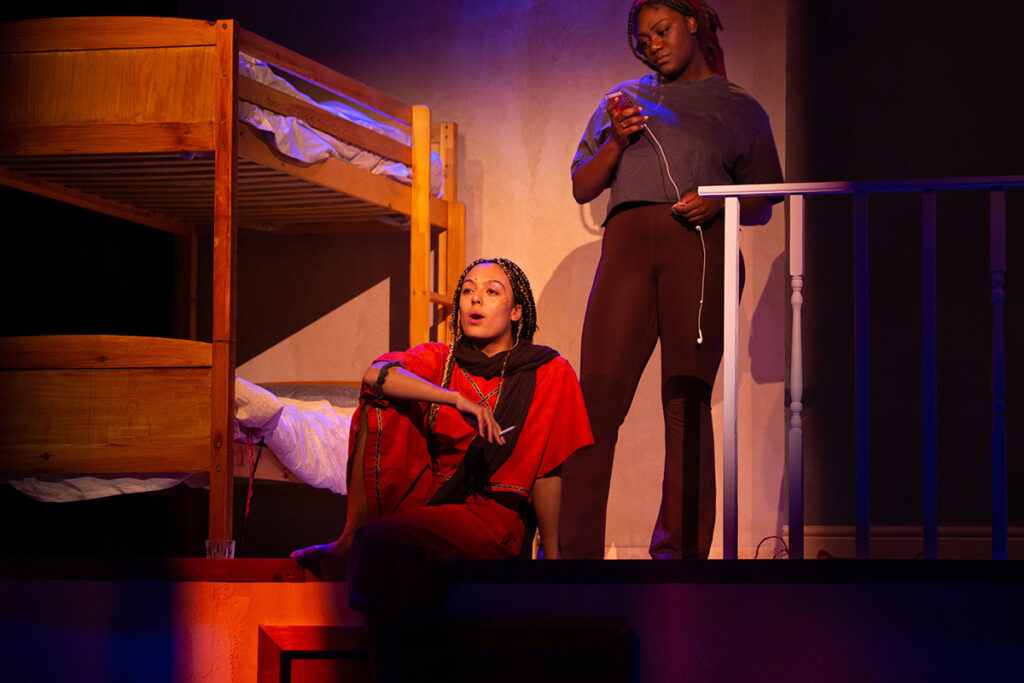
The title of the play (and what a good title it is) comes from a telephone message recorded by young Suhela. It’s a beautifully written monologue though, again, it might carry more force delivered directly to other characters, rather than in playback.
Tom Leaha AKA Werkha adds commendable musical support, though as he is visible, stage left, throughout, it’s an effort not to be thrown by this male incursion into a female domain.
Ellie Light’s split-level set functions well. The upper level shows two bedrooms (for the daughters) open to our view, separated by a landing and a (mostly) closed door (the bathroom?) Stage level is a single living room, opening directly onto the “street” – a layout familiar to many who have lived in such terraced properties. The sense of claustrophobia offered by the set, is not yet quite manifested by the production.
As a collaborative art form, it is often one of the most difficult and yet rewarding aspects of drama to pass control to your fellow creative artists. I would be very interested to see how another director might articulate Warsama’s text. There are the makings here of something exceptional. Thus far, I don’t think it has quite taken shape. Even so, you should go and see, “Of All the Beautiful Things in the World;” there is plenty to admire.
Lorca in Levenshulme? Why not?
Of All The Beautiful Things In The World is at Home, Manchester from 24 March to 6 April 2023. Age 14 +

